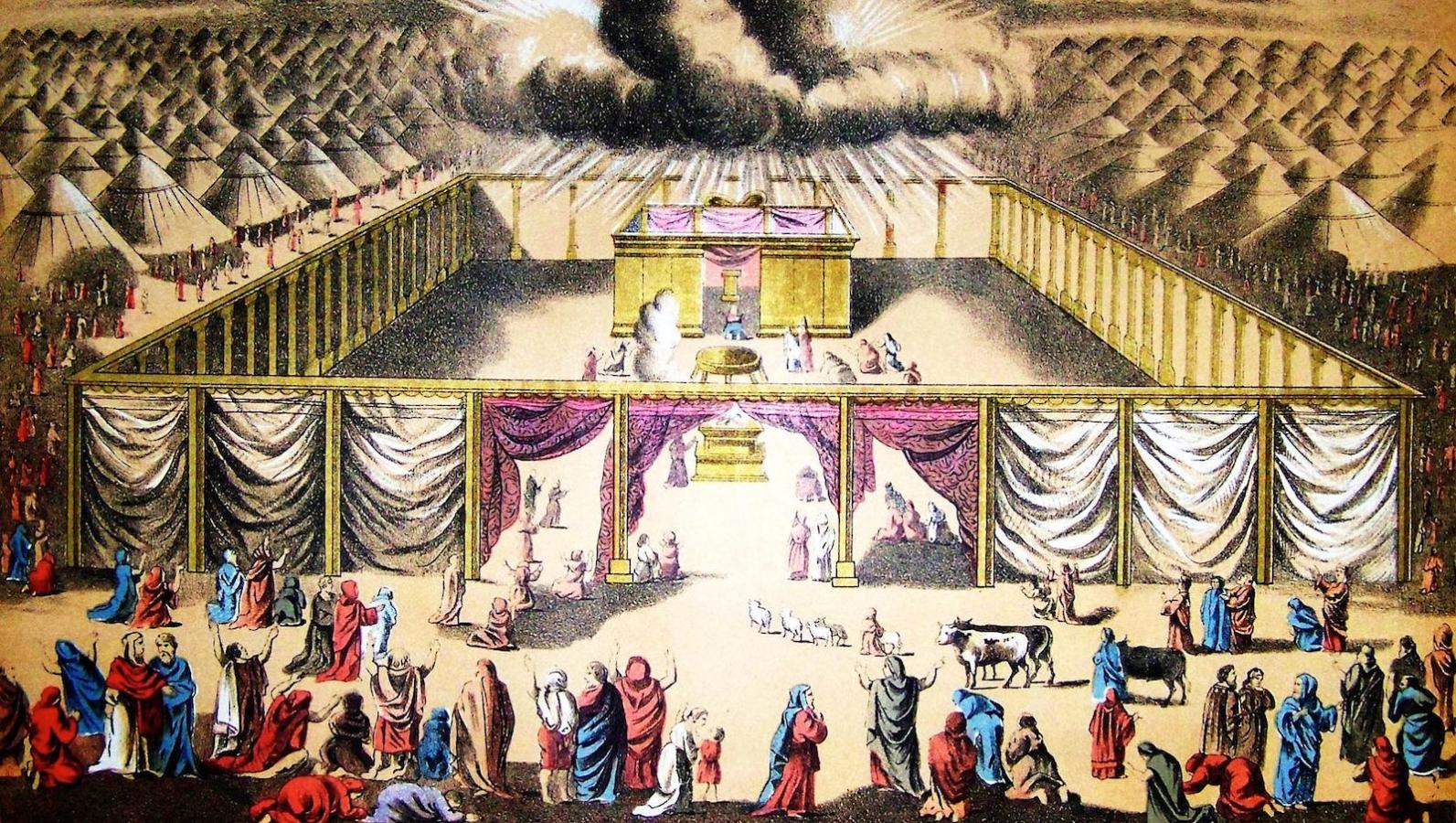Commentary on Parashat Terumah, Exodus 25:1-27:19; Numbers 28:9-15; Exodus 30:11-16
This week’s Torah portion, Terumah, contains the first words told to us after the narrative describes Moses’ ascension to Mount Sinai. Most of the portion is a long description of the building of the tabernacle, a traveling temple that the Jews had in the desert.
The portion begins as follows: “And God said to Moses saying, ‘tell the children of Israel; take gifts to me from each person according to their desire…and this you will take: gold, silver, bronze, purple wool…and oil for the menorah…And you will make a sanctuary for me and I will dwell among them. All I have shown you of the look of the mishkan (tabernacle) and its vessels shall you make…'” (Exodus 25:1-9)
The rest of this week’s portion and all of next week’s go on to describe in detail how to construct the tabernacle.
Read the following questions and discuss them. Then, read the texts below and discuss the questions again:
With your help, My Jewish Learning can provide endless opportunities for learning, connection and discovery.
1. Why do you think the laws of the tabernacle are given to Moses first?
2. If we believe God is everywhere, infinite, and non-physical, why does the Torah ask us to build a physical space for God’s dwelling?
3. If God just brought the Jews out of Egypt and split the Red Sea, then why does God need the Jewish people to provide the materials and labor to build the mishkan (tabernacle)? Why wouldn’t God do it Himself?
Some Texts
Rabbi Tarfon said, “How great is work, for even God (who is everywhere) will not bring the divine presence to rest on the Jewish people until they have done work. As the Torah says, ‘[They must] make for me a tabernacle and [then] I will dwell among them.'” -Avot D’rabbi Nason
“Change was very difficult for the Jewish people. Therefore, God gave them animal sacrifices because that is the type of service they were used to, not because it was the best type. God wanted to turn their sacrificial service of idols to the service of the One God.” –Maimonides–Rabbi Moshe ben Maimon of Fez (formerly of Cordoba), 11th century (Guide to the Perplexed 3:32)
A Word
The Talmud says that for us today prayer has replaced the sacrifices. Doing the work of approaching God, exercising the ability of the human to reach beyond and encounter face to face the brute existence of the Most High, is what both sacrifice and prayer are really all about. This is service for no ulterior purpose than encountering the Divine one on One, and standing in relationship with God.
If we experience Being through relationship, as Martin Buber said we do, then the primacy of the experience of approaching, standing before, and interacting with the Divine, may be one of the most powerful and necessary things we can do as humans and Jews.
A famous Hassidic Rabbi once asked, “why does the Torah say, ‘Build a sanctuary for me and I will dwell in them (plural)?’ Wouldn’t it be more correct to say, ‘build a sanctuary and I will dwell in it (singular)’?
The answer teaches us that God really desires a sanctuary in each one of us.
Provided by Hillel’s Joseph Meyerhoff Center for Jewish Learning, which creates educational resources for Jewish organizations on college campuses.
Moshe
Pronounced: moe-SHEH, Origin: Hebrew, Moses, whom God chooses to lead the Jews out of Egypt.
Torah
Pronunced: TORE-uh, Origin: Hebrew, the Five Books of Moses.



